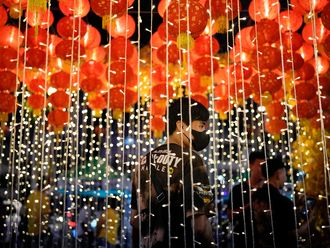Dubai: In the recent past, Emirati Nabati poetry - written in everyday dialect - has enjoyed a renaissance of sorts.
For long the preserve of a select few who would regale private gatherings, this style of essentially Bedouin poetry has now come to have its own forums and modes of dissemination.
Vernacular poets are now rising to fame after taking part in contests and pageants on radio and television that offer attractive prizes. The most prominent programme is The Million's Poet, which encourages viewers to vote for contestants.
Nabati poetry is many centuries old and, according to some scholars, its beginnings may be traced back to the early days of Islam, reflecting and documenting the daily life of ordinary people. It is spontaneous, enabling the poet to communicate freely and directly with the audience.
Nabati poetry has its own metres or arranged patterns of rhythm which are no different from those adopted in classical poetry.
For example, in a well-known type of Nabati (a form called Al Hajini), we find a replica of the classical Al Raml metre and its rhythmic pattern.
Emirati heritage specialist Bilal Al Budoor points out that "there is little that distinguishes Nabati poetry from the classical form: Nabati is rhythmically patterned but uttered in the vernacular."
The new generation of Nabati poets incldue Juma'a Al Shamsi, Juma'a Bin Nayem Al Ka'abi, Saeed Al Nuaimi, Saif Bin Nu'maan Al Ka'abi among others.











